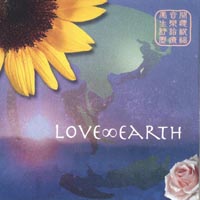Known • Told
Usually, these two phrases "知道" and "曉得" are interchangeable in Chinese usage. (知道 means know; 曉得 means told.) 知道 could be 曉得, and 曉得 could be vice versa. (Yeah, I know. You can tell their difference in English, but in Chinese, I don't think most native Chinese speakers recognize this difference. You can tell how huge the culture differences could be!)
Have you really think about their differences in between these two phrases? (I felt that I've never read about the difference in Chinese textbook, and even my Chinese teachers have never mentioned about it.)
Once I was experiencing my conscious in a very sensitive state, I suddenly realized these two phrases deeply from the characters themselves. Thereafter, when I am tasting and playing around vocabularies, I've learned to dissect the phrases and characters so that I can discover their original meanings. As a manner of fact, when we don't know about something, we learn it from others' explanation. Just like if you are not sure what the difference is between these two, when you read this article, I will "曉" or tell you its meaning; thus, you will be able to "得," catch, or receive its original meaning. Starting from now, you "知道" or "know" the slightly differences of these two Chinese phrases. "知道" is known. While dissecting the character "知," I learned that I tell what I already "known" from my "口" or mouth, and the words that I said act like an arrow or "矢" pointing to the people who are listening.
Therefore, "知道" expresses the "道," tao, path, or rules of how things operate, but it does not point out how we "know" about things. In comparison, "曉得" expresses the specific "we know from what we were told."
As the above mentioned, for the original meaning of the similar vocabularies such as "清楚," "了解, "明白," or "懂得," perhaps you can try to discover on your own!¶
Post script: Whenever I'm thinking why "意義" means "meaning," I have no idea what the differences between "意" and "義." I don't understand how these two Chinese characters were put together. I've searched many dictionaries, but I still found myself confused. If you know how it works, I'd like to hear from you guys. Thank you very much!
Have you really think about their differences in between these two phrases? (I felt that I've never read about the difference in Chinese textbook, and even my Chinese teachers have never mentioned about it.)
Once I was experiencing my conscious in a very sensitive state, I suddenly realized these two phrases deeply from the characters themselves. Thereafter, when I am tasting and playing around vocabularies, I've learned to dissect the phrases and characters so that I can discover their original meanings. As a manner of fact, when we don't know about something, we learn it from others' explanation. Just like if you are not sure what the difference is between these two, when you read this article, I will "曉" or tell you its meaning; thus, you will be able to "得," catch, or receive its original meaning. Starting from now, you "知道" or "know" the slightly differences of these two Chinese phrases. "知道" is known. While dissecting the character "知," I learned that I tell what I already "known" from my "口" or mouth, and the words that I said act like an arrow or "矢" pointing to the people who are listening.
Therefore, "知道" expresses the "道," tao, path, or rules of how things operate, but it does not point out how we "know" about things. In comparison, "曉得" expresses the specific "we know from what we were told."
As the above mentioned, for the original meaning of the similar vocabularies such as "清楚," "了解, "明白," or "懂得," perhaps you can try to discover on your own!¶
Post script: Whenever I'm thinking why "意義" means "meaning," I have no idea what the differences between "意" and "義." I don't understand how these two Chinese characters were put together. I've searched many dictionaries, but I still found myself confused. If you know how it works, I'd like to hear from you guys. Thank you very much!
Labels: Insight



